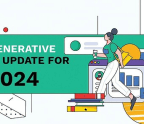
Throughout human history, people wake up to the fact that we are here for only a short “blip” in time. They may look up to a starry night and ponder the vastness of space, the greatness and smallness of their own lives. This sudden awakening to the preciousness of time inspires many to contemplate the meaning and purpose of their lives; their placement in history; their role in creating or at least influencing the future; or the power of their own choices to change direction, influence others, and contribute to the greater sense of meaning in the course of human history. It leads many to recognise that each one of us is a valuable yet momentary hero or heroine, living our life in a human society on a living, breathing, and changing planet.
Scientists and philosophers, too, explore the meaning of life within their respective disciplines and perspectives. We know from quantum mechanics, for example, that all material objects simultaneously exist as a wave and a particle. This paradoxical mystery also applies to the experience of being human beings. On one hand, we flow (sometimes bumping along) through the journey of our lives — growing, learning, changing, and eventually, moving into the great unknown. Simultaneously, at any one moment, time stands still and the greater context of our society and world is frozen in meaning and experience. We live each moment embedded in a specific society that is surrounded by a dominating “Zeitgeist” (a term often described as the spirit of the age, the overarching mood of that specific period that is constantly being created, and recreated, by the overarching ideas, beliefs, and events of that time.)
Life, itself, comprises waves and particles, experiences that are both individual and shared. Our moments in life are the particles; our journey through life, the wave. With life so short in the arc of the universe, our proposal is that one's life should focus on goodness—being our better selves, contributing our strengths and values to create a better world, and taking action to design a healthy, thriving, and “best” future. Given the power that human beings have to envision the future, act, and produce impact, we see the value and responsibility for people of all cultures, disciplines, and walks of life to create meaningfulness, happiness, and even bliss for ourselves and others with whom we walk our journey through life's moments.
This is the first of a two-part article. In part I, we discuss why we need a new framework to guide our efforts to design the future. We describe the Future Design Framework (developed by futurist Mario Raich, coauthor of this paper), and its foundational concepts. The issues discussed hereafter become of utmost relevance, especially in view of the recent developments in artificial intelligence (AI), for which some fear that it can possibly destroy humanity (see: Delbert, 2022).1
THE NEED FOR A FUTURE DESIGN FRAMEWORK
Given that we don't know the future, seeking to design the future is simultaneously stimulating, presumptuous, and terrifying. We can't see it, touch it, or fully anticipate its possibilities and risks. Human beings live within an external, environmental context of forces, paradigms, assumptions, and axioms. We also operate from an internal, inner context that has been shaped over time. In this paper, we describe the positive and negative interpretations of the disruptive forces we face today and propose longer-term possibilities that may arise from these forces. We then






